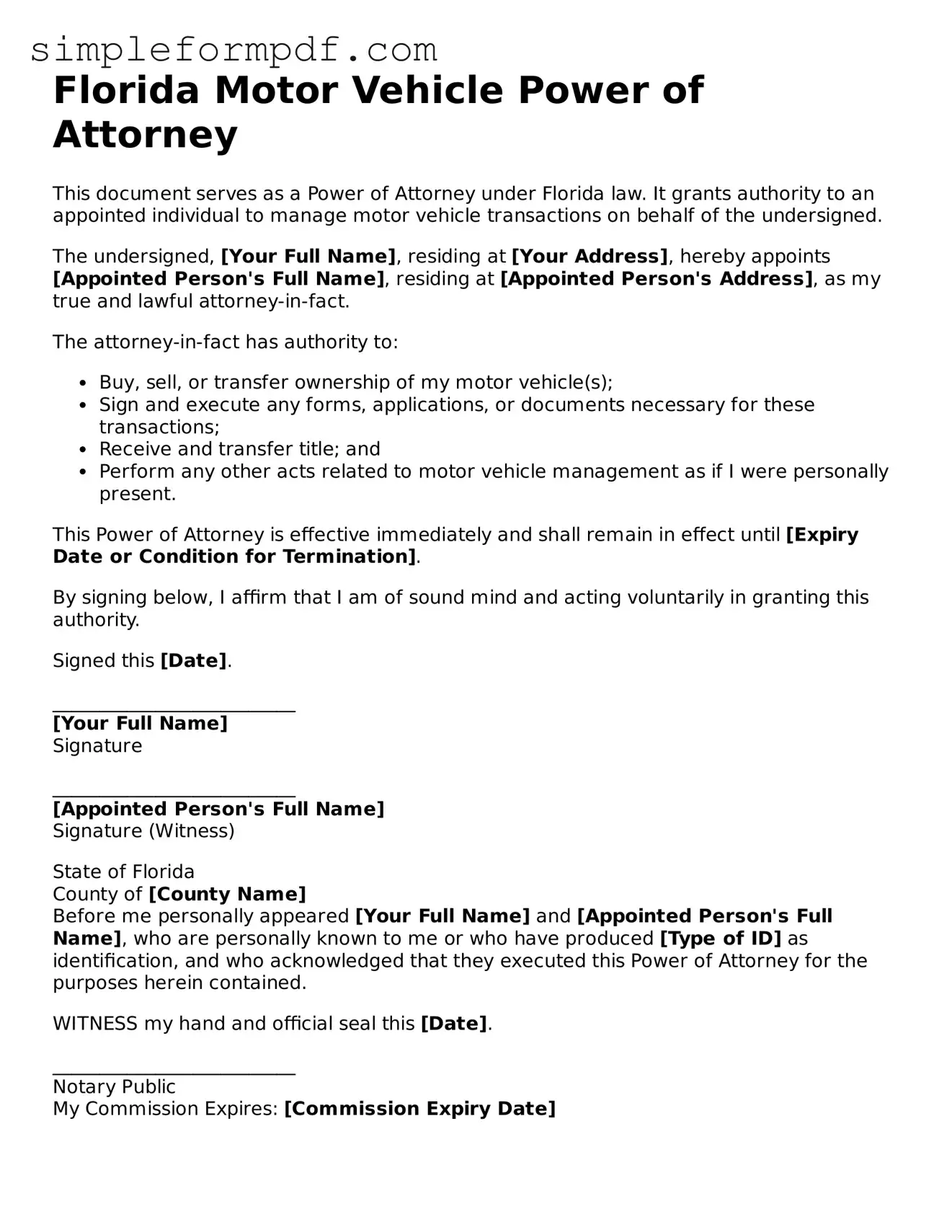Free Motor Vehicle Power of Attorney Form for the State of Florida
The Florida Motor Vehicle Power of Attorney form is a legal document that allows one individual to grant another person the authority to handle specific motor vehicle-related tasks on their behalf. This can include signing documents for vehicle registration, title transfers, and other essential transactions. To ensure a smooth process, consider filling out the form by clicking the button below.
Launch Editor

Free Motor Vehicle Power of Attorney Form for the State of Florida
Launch Editor
Need instant form completion?
Finish Motor Vehicle Power of Attorney online in just a few minutes.
Launch Editor
or
Download PDF
